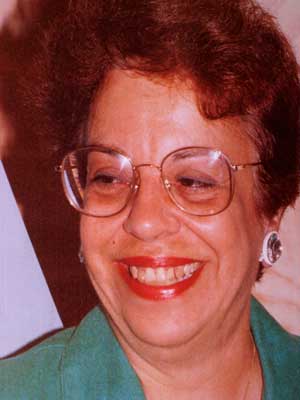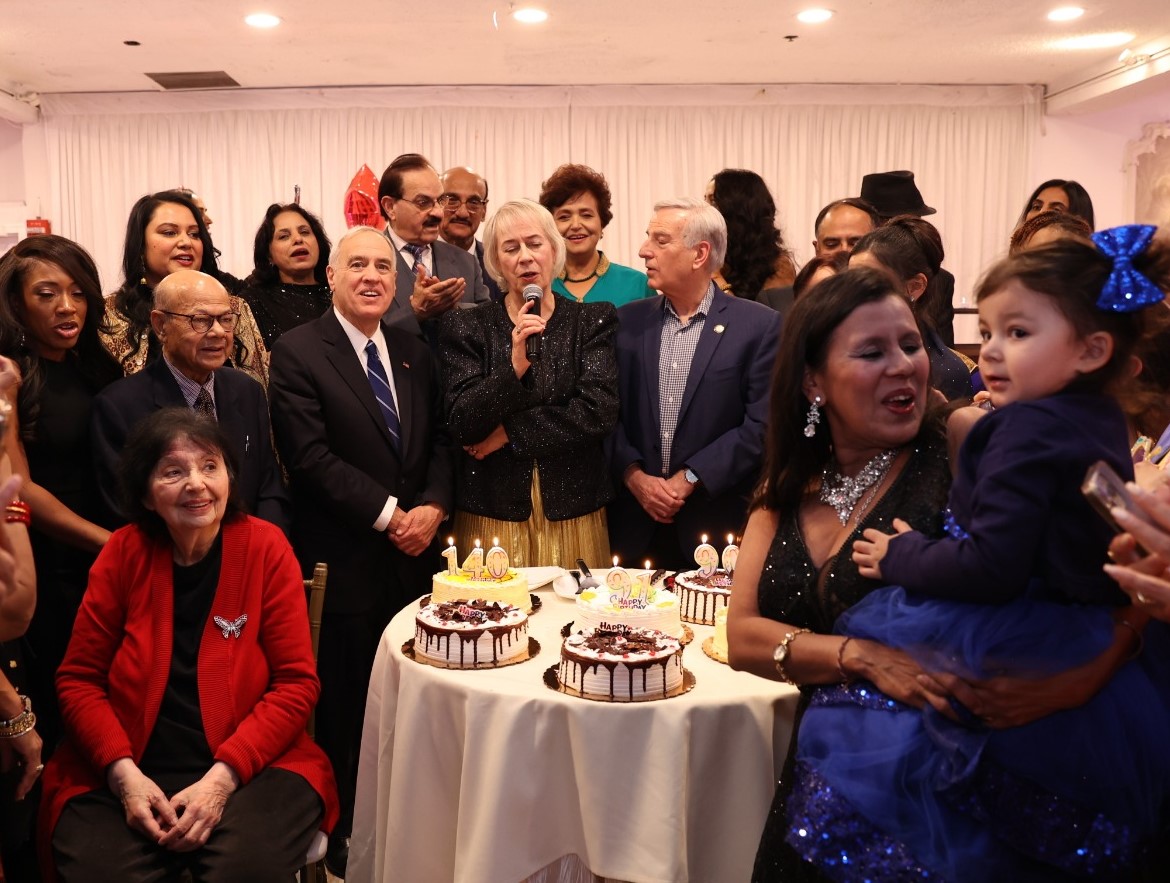
BY LINCOLN ANDERSON | Helen Iannello, a fixture in the politics and struggles of Greenwich Village in the 1950s, ’60s and ’70s, died on Aug. 18 at age 89.
A Greenwich Village native, she was born and grew up on Thompson St. She attended P.S. 3 and New York University.
She rose to become an early president of the Village Independent Democrats club, later becoming a charter member of the offshoot Village Reform Democratic Club, formed by Ed Koch’s backers when V.I.D. backed Mario Cuomo for governor over Koch.
“She was a tough lady and a very smart lady,” Koch said. “She was a very good friend — especially when you were under attack, she’d be there standing up for you.”
She was an original member of Community Board 2 — on which she served for many years — and was also on the community advisory board of St. Vincent’s Hospital.
Among the many causes she championed, Helen Iannello fought to block Westway. The proposed mega-project would have added landfill in the Hudson River along the Lower West Side, through which a highway tunnel would have run, with new housing built above it. Westway was defeated and eventually the Hudson River Park was built in its place.
Iannello also was part of the effort to save the castle-like Jefferson Market Courthouse and convert it into a public library.
Her son Mark Iannello, speaking at her funeral Mass at St. Joseph’s Church, at Sixth Ave. and Washington Place, said, “She was a special person for a special time in Greenwich Village.
“My mom helped to keep sightseeing buses off the streets of Greenwich Village,” he said. “She also stood up for the rights of homeless people. She was a proponent of affordable housing.
“She was a devout Catholic, and yet when she differed with Rome, she did what she thought was the right thing and created the Catholic Women for Abortion Association,” her son recalled.
“She fought for gay rights issues, and the installation of statues depicting gay lovers embracing in the West Village,” he said, referring to George Segal’s “Gay Liberation” statues in Christopher Park. The plan for the sculptures — to mark the 10th anniversary of the Stonewall riots — drew strong opposition from some local residents when the idea was hatched in 1979. Eventually, the statues were installed, 13 years later.
Her son noted his mother also helped to save The James Children Center on the Lower East Side.
With the help of many, including Art D’Lugoff of the Village Gate, her son recalled, she battled the city to change the Fifth Ave. bus route, so that buses would no longer drive around the Washington Square Park fountain.
She helped push for the renovation of the Carmine Street Recreation Center, on Seventh Ave. South, now known as the Anthony Dapolito Recreation Center.
Along with fellow V.I.D.’ers, Helen Iannello marched with Dr. Martin Luther King Jr. in the civil rights battles of the ’60s.
“She fought — it seems like constantly — for the passing of the Equal Rights Amendment, as well as for Planned Parenthood and the A.C.L.U.,” Mark said.
“She even locked horns with the developers of the complex across the street to prevent them from building disproportionately taller buildings,” he told those gathered at St. Joseph’s in memory of his mother, regarding the development across Sixth Ave. from the church.
“Helen also did a lot to save this very church,” he said, “by bringing into the fold so many open-minded people — and, as a result of all their hard work, they have changed St. Joseph’s from a stodgy old place, to a vibrant, forward-looking congregation.”
Helen Iannello served in the Navy WAVES during World War II and “was quite a Jitterbugger in her day,” he recalled.
“She received last rites three times in her life, and now for the fourth time, and whenever the subject of death came up she often said, while shaking her finger, ‘I’m sticking around, just for spite.’ She was quite a feisty character,” her son said.
In her earlier career, she worked at Macy’s in the advertising department for many years.
In a letter of recommendation, William F. Hilz, director of broadcasting and advertising for R.H. Macy Co., said, “Helen is one who has honesty, integrity and a sense of pride in doing more than is ever asked. She will get the job done.”
After her V.I.D. ally Koch was elected mayor — “she could pick her job at that point,” Mark noted — she worked for the city administration, overseeing contracts above $50,000 for the Department of General Services, to ensure that women and minorities were not being left out of the agency’s work force.
She married an electrical engineer from Virginia who she met in Brooklyn, who worked on the space shuttle and the first computer, according to Mark. They divorced in 1960, and he died two years ago. In addition to Mark, she is survived by another son, Anthony.
Perazzo Funeral Home, 199 Bleecker St., was in charge of arrangements.
In 2007, Ed Gold, writing for The Villager about V.I.D. and its historic upset of powerful District Leader Carmine De Sapio (“The club that toppled Tammany turns 50”), recalled, “Very few Italians joined V.I.D. But one, Helen Iannello, was conspicuous before John LoCicero, who became Koch’s top political aide in City Hall, came aboard in the mid-’60s. Iannello, who was very outspoken, ran for Executive Committee in 1963 and contended that, ‘It’s very hard to get elected to the Executive Committee if your last name ends in a vowel.’ A man jumped up in the rear of the room and shouted: ‘I haven’t had any trouble.’
“ ‘What your name?’ Iannello asked.
“‘Shapiro,’ he shot back. It eased the tension. She got elected, and later would be president of the club.”
































